- europages
- >
- COMPANIES - SUPPLIERS - SERVICE PROVIDERS
- >
- fiber laser
Results for
Fiber laser - Import export

KNIGHT OPTICAL (UK) LTD
United Kingdom
Knight Optical offer a range of Stock Ball Lenses and Half Ball Lenses, for use within Fibre Lasers. As the name suggests ball lenses are completely spherical lenses mostly made out of High Refractive Index Glass such as Sapphire, and LASFN-9 Glass. The reason ball lenses are most commonly used is for their ability to focus light when leaving a fibre optic, so that it can therefore be used for a laser application. The key feature of ball lenses is their short back focal length allowing for precision coupling where size or space is a limiting factor in the system. Ball lenses are typically used in pairs with one lens acting as a collimator for the second to focus the light back into the coupled fibre. Where a more compact solution is required a half-ball lens is typically more suitable. We hold a large inventory of Ball Lenses. •Stock sizes from 0.5 5mm to 10mm diameter. •Custom sizes available to quotation. •Half Ball lenses also available.
Request for a quote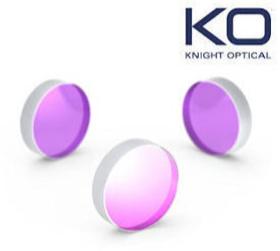
KNIGHT OPTICAL (UK) LTD
United Kingdom
Knight Optical’s Low GDD Ultrafast Laser Mirrors are ideal for demanding laser applications, especially where femtosecond ultrafast lasers are utilised. Our product catalogue consists of laser mirrors optimised for the fundamental and second harmonic (SHG) emissions of Ytterbium (Yb) doped lasers including diode-pumped solid-state (DPSS) and fiber lasers, and therefore have a design wavelength of either 515nm or 1030nm. Their key features include: •Ion beam sputtered (IBS) coating which is compact and durable. •Reflection > 99.9% within their wavelength range of either 500-530nm or 1010-1050nm. •Available as 0° and 45° angle of incidence •Exhibit minimal group delay dispersion (GDD) to prevent pulse broadening •High laser induced damage threshold (LIDT) •Precision flatness and surface quality to minimise laser scattering All of the above are important criteria for mirrors used to form a laser resonator, making these laser mirrors ideal.
Request for a quote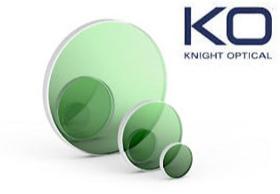
KNIGHT OPTICAL (UK) LTD
United Kingdom
Knight Optical’s Laser Optics range include Thin Film Polarisers which separate the s- and p-polarised light with negligible absorbance within the coating for low loss performance. The laser thin film polarisers are optimised for 515nm and 1030nm design wavelengths, ideal for Ytterbium (Yb) doped lasers including diode-pumped solid-state lasers (DPSSL) and fiber lasers, as well as Nd:YAG lasers emitting at 1064nm. Currently, we stock thin film polarisers which work at either 45° or at Brewster angle (55.4°), both of which have been coated using ion beam sputtered (IBS) technology, creating a compact and durable coating, with a LIDT suited for ultrafast laser applications. Often used within a laser resonator to separate the different polarisation states and can be used as an alternative to polarising beamsplitter cubes or Glan-type polarising prisms. The following are the tolerances for the laser polarisers:
Request for a quote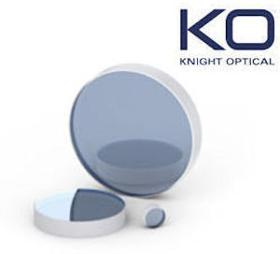
KNIGHT OPTICAL (UK) LTD
United Kingdom
As well as Knight Optical’s Low GDD Ultrafast Laser Mirrors, we can also provide broadband and wide-angle alternatives to cover more of a range of applications. Our Wide-Angle Laser Mirrors optimised for the fundamental and second harmonic (SHG) emissions of Ytterbium (Yb) doped lasers including diode-pumped solid-state (DPSS) and fiber lasers, and therefore have a design wavelength of either 515nm or 1030nm. They exhibit > 99.9% reflection when used between 0 to 45°. The Broadband Laser Mirrors work from 700-900nm ideal for applications using a Ti:Sapphire laser, again demonstrating > 99.9% reflection within this wavelength range. Their key features include: •Ion beam sputtered (IBS) coating which is compact and durable. •Reflection > 99.9% within their design wavelength range. •Broadband laser mirrors work at 45° •Exhibit minimal group delay dispersion (GDD) to prevent pulse broadening •High laser induced damage threshold (LIDT) •Precision flatness and surface quality to
Request for a quote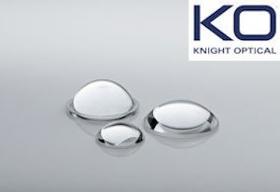
KNIGHT OPTICAL (UK) LTD
United Kingdom
Knight Optical We can offer Custom Moulded Aspheric Lenses for use with Laser Diode Collimators. Aspheric lens surfaces are used to correct spherical aberration (where the converging light from a lens does not have a common focal point, resulting in a distorted image) in lasers and imaging. Traditional spherical lenses cannot collimate light effectively because even small angles of incidence can produce spherical aberrations. This can mean that several components may be required to get the desired result. The non-spherical surface of an aspheric lens allows a single component to effectively focus or collimate even highly divergent emissions, potentially replacing a multi-lens system with a single aspheric lens. Therefore Aspheric Lenses that are moulded are ideal for use within laser diode-to-fibre coupling applications. For more information read the PDF..
Request for a quoteDo you sell or make similar products?
Sign up to europages and have your products listed
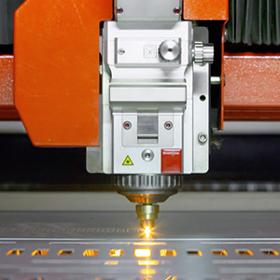
ALPHA MANUFACTURING
United Kingdom
Utilising the latest in Fibre Laser Cutting technology Alpha Manufacturing are able to offer a versatile laser cutting service in various material types including; Mild Steel, Coated Steels, Stainless Steel, Aluminium, Wood and Plastics. We currently operate one Co2 Bystronic Laser, one Bystronic BySprintFiber 4020 machine and our latest addition to our Laser service, the Trumpf Trulaser 3030 fibre machine. Fibre optic laser is the latest technology in laser cutting, with complete accuracy and ultra high-speed cutting (whilst also using fewer power resources than traditional lasers, meaning reduced costs to the customer).
Request for a quoteResults for
Fiber laser - Import exportNumber of results
7 ProductsCompany type